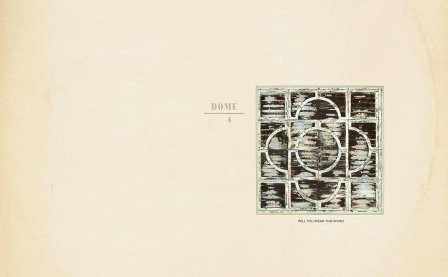It's strange to have one of the great post-punk bands of all-time — indeed, one of the vanguards of the genre that’s had such a massive impact on contemporary independent music and culture — still around and logging studio time in 2008. I mean, just imagine what the sonic landscape would look like had Joy Division survived to record a third LP or maybe even a new record in a fourth decade of music-making. That sort of unthinkable achievement has been realized by the indefatigable Wire; Object 47 comes to us nearly three decades after their spectacular opening run of Pink Flag, Chairs Missing, and 154.
Great music is so often defined to some extent by contextual markers: who did what first, in what place, and by what means. So often a band or a record is defined more by impact or foresight than by execution. Of course, this prescience can be channeled through the music and contribute to the impact and enjoyment of the pieces themselves. When I listen to Wire’s early records, I’m awash in sounds that just weren’t made in the late-’70s, and these sounds transmit a form of energy that drive home the essence of punk rock: rebellion, restlessness, and innovation. Early Wire distilled these amorphous qualities in producing some of the best tunes of the early post-punk movement.
Understandably, very few bands have been able to sustain their brilliance for any prolonged period of time. Great groups too often occupy a small snapshot in history before burning or fading out and moving aside so that new bands can then build upon their contributions. Such longevity is an especially difficult feat for acts that don’t owe their deepest footprints to virtuoso songwriting talents (think Dylan, Bruce, Cohen, Waits). Sonic Youth is one of the few bands that have truly hit that mark, and even they have become less overtly experimental as time has passed. It’s just too much to ask that a band continuously evolve such that they are always ahead of a constantly shifting curve.
Indeed, Object 47 accords to its own set of contextual markers. This record is pop-influenced, with more conventional song structures stuffed with propulsive guitar work. The first track, “One of Us,” begins with promise and a grooving bassline before stumbling upon a downright awful chorus. “Hard Chorus” glides forward on the strength of an opening bass riff that sounds a lot like the one in Massive Attack’s “Safe from Harm.” Unfortunately, Wire’s song isn’t nearly as good. At least the album ends on a high point, as “All Fours” emerges as its strongest take. It’s lively and intense and fresher than anything else you’ll find on Object 47.
Object 47 is not a horrible record; it just isn’t all that good. It has none of the flare found on the band’s trilogy of classics and is never quite able to free itself from not-so-desirable labels like bland and unchallenging. It’s strange using these words to describe a Wire release, but Object 47 fails to even scrape at the boundaries of what we’ve heard countless times by countless bands, many of which have tried and failed to carry a torch that Wire helped to ignite back in 1977. Unfortunately, this just isn’t the same band that gave us all those great records of yore.
More about: Wire




